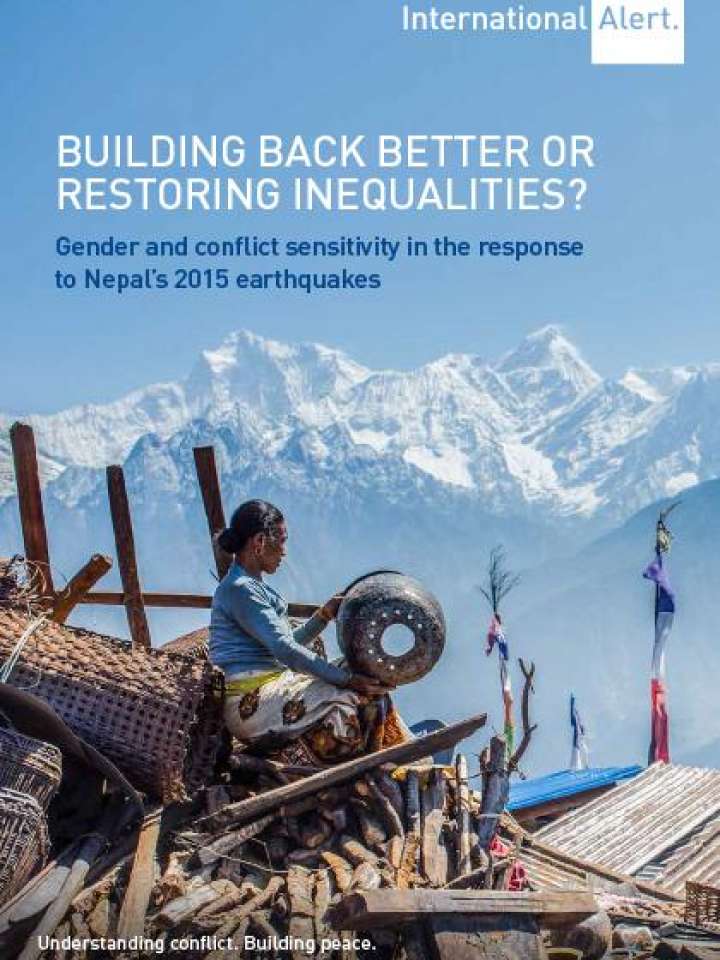Building back better or restoring inequalities: Gender and conflict sensitivity in the response to Nepal’s 2015 earthquakes
This report is based on research into the gender dimensions of humanitarian interventions in post-conflict settings from a peacebuilding perspective, using the 2015 earthquakes in Nepal as a case study from which lessons can be drawn for other contexts. It identifies the risks posed by gender-blind humanitarian programming, the need to understand the multiple intersecting dimensions of vulnerability, as well as the key challenges in operationalising national and local gender and conflict-sensitive programming. The purpose of this investigation was to strengthen humanitarian programming that supports both gender equality and peace in complex post-conflict, post-disaster settings.
Explore further
